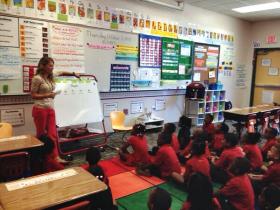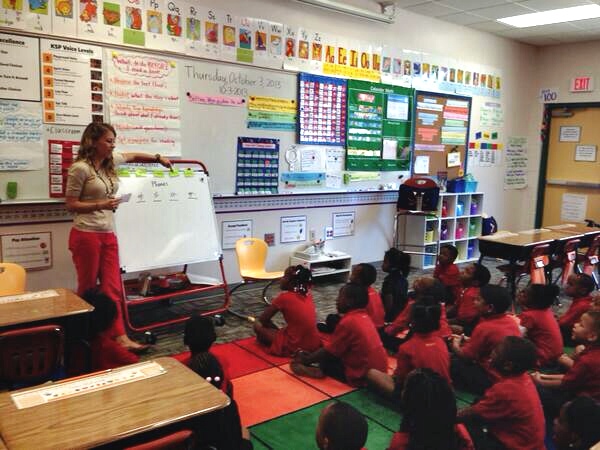By Martha Dalton
Atlanta – The tables will be turned on some Georgia teachers next fall when they’re graded on students’ standardized test scores. The change is part of a new teacher evaluation system funded by the federal Race to the Top grant.
Georgia’s current teacher evaluation system puts educators in one of two categories: satisfactory or unsatisfactory. The ratings are usually based on a 20-minute observation by an administrator. The new model would base 50% of a teacher’s evaluation on students’ standardized test scores. Part of the problem with that is finding a fair way to measure students’ performance. Teresa McCartney is Georgia’s Race to the Top implementation director. She says the department is considering several different ‘growth’ or ‘value add’ models.
“We have not made any decisions on what tool we will be utilizing we will be partnering with our 26 Race to the Top systems to determine that piece,” McCartney says.
‘Value add’ models predict how much growth a student should show based on past performance. But Tim Callahan, of the Professional Association of Georgia Educators, says test scores shouldn’t account for so much of a teacher’s performance.

“50% is a very high weight to put on a single test for a single student and I think that’s going to be difficult,” Callahan says.
And, he says, finding an effective evaluation model by next fall is a tall order.
“Our concern is that they’re going to do this on the cheap in terms of money, time, and people, and in so doing really cause a catastrophe,” he says.
Callahan says 60-70% of Georgia teachers teach classes that don’t use standardized tests, such as PE, art, and music. McCartney says those non-core teachers will have a new evaluation system too.
“For your non-core teachers it’s looking at qualitative measures, evaluations,” she says. “That would make up 60% of their teacher effectiveness measure. And then 40% of it would come from other quantitative measures, like surveys.”
The plan also includes changing the salary scale for teachers and principals. The current schedule is based on years of service and levels of education, but will eventually be linked to students’ scores.
But the jury is still out on whether or not compensating teachers based on students’ scores will be effective in Georgia.
Susan Walker is the director of policy and research at the Georgia Partnership for Excellence in Education.
“Really what the research is finding is that so far it doesn’t seem to make a big difference in student outcomes,” Walker says.
Walker says the switch could serve as an incentive to new teachers entering the field, but because so far that hasn’t been researched.


9(MDAxODM0MDY4MDEyMTY4NDA3MzI3YjkzMw004))








